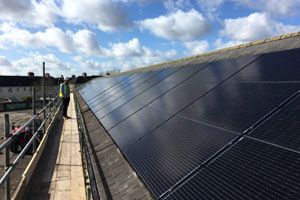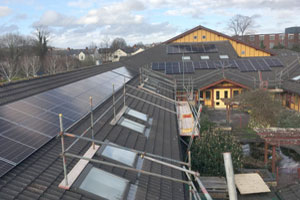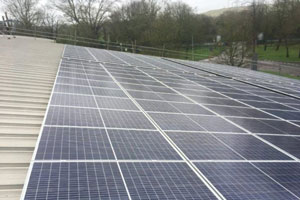After much lobbying from Community Energy Wales, Welsh Government Energy Service, Community Energy England and others over recent weeks, the Department for Business, Energy and Industrial Strategy has just passed The Feed-in Tariffs (Amendment) (Coronavirus) Order 2020. It was signed electronically by BEIS minister Kwasi Kwarteng, a first, apparently and came into force on 31 March.
It gives community FiT projects with an Ofgem eligibility date (i.e. date by which installations must be completed, commissioned, MSC certified and registered with Ofgem’s FIT register) that falls between 1 March and 31 March 2020 at least an extra six months to complete and register which must happen by the final deadline of 30 September 2020. There is a short government Explanatory Memorandum which mirrors some of our communications with BEIS.


Rosie Gillam, Egni Coop Director, said “This is tremendous news. We’ve installed 1.8MW solar over the last 12 months on schools, community buildings and businesses across Wales. We can do so much more and whilst we can’t start new sites until the lockdown period ends, we can ensure that we are ready to go as soon as it’s safe to do so. This will maintain jobs in the renewables sector and ensure that we can continue to tackle climate change.”

Duncan Law, Policy Manager at Community Energy England said, “We are delighted that BEIS has reacted so swiftly and proactively to our requests for an extension to the FIT completion deadline on 31 March, in the light of difficulties experienced by members as a result of the current emergency. For many community energy organisations this would have meant projects failing and financial damage that might have threatened organisations’ existence. Now we will see more than 1 megawatt of extra community renewable energy capacity, at least £1 million pounds more investment in local solutions by local people and huge long-term community benefit.”


STA Chief Executive Chris Hewett said: “It is great to see Government providing flexibility to community solar projects which were at risk of becoming unviable due to recent disruption. Kwasi Kwarteng has acted swiftly and decisively, and should be applauded for that. The solar industry continues to engage with Government to ensure urgent needs are met during this period of uncertainty, and will be reassured by this decision.”



